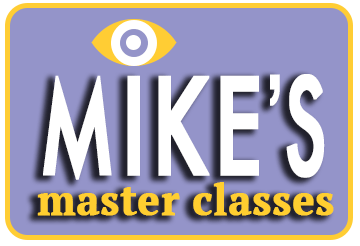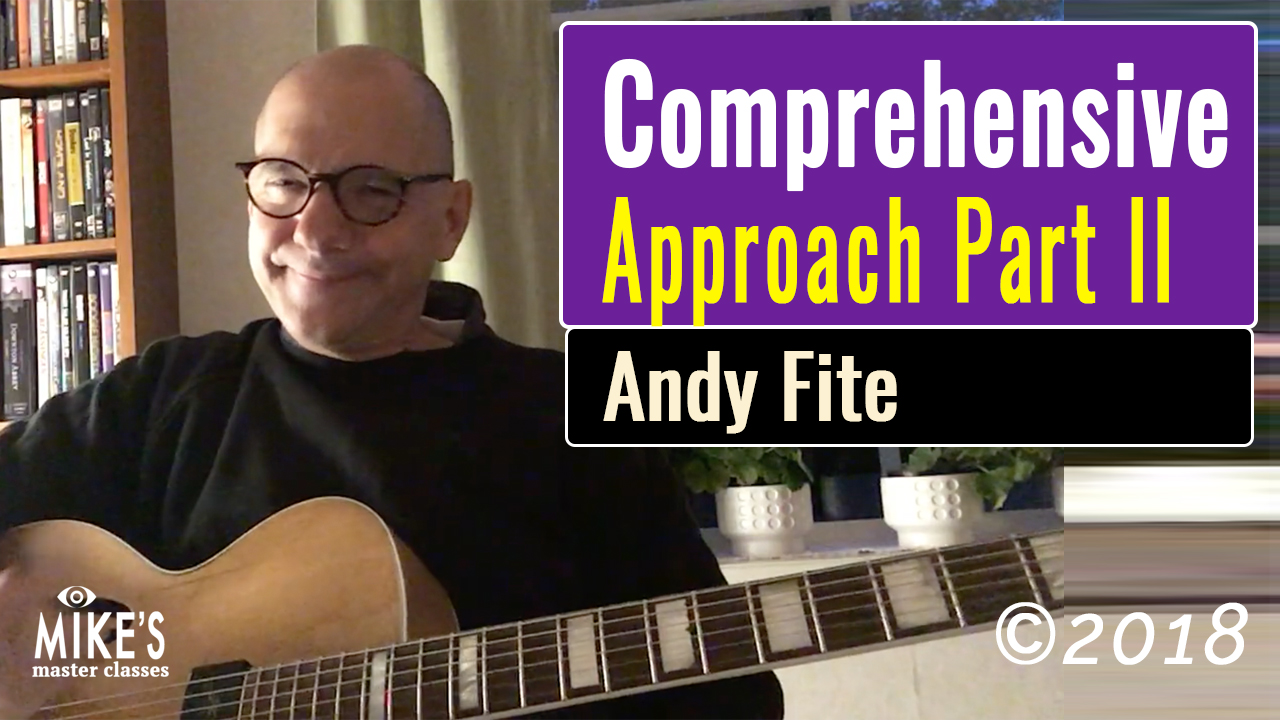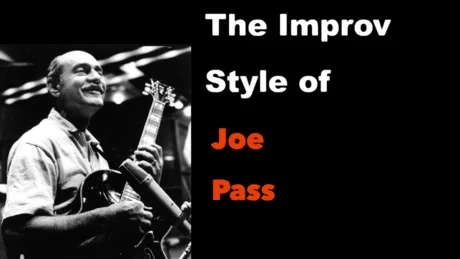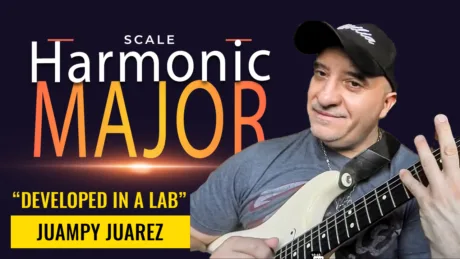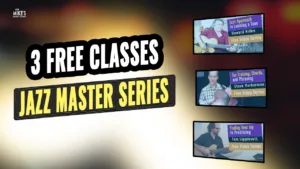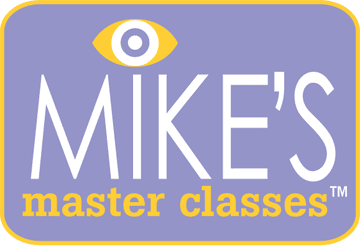The purpose of these videos is to help guitarists work toward a complete comprehensive mastery of this instrument (certainly of course an ideal goal which can never be totally fulfilled), with the idea that with mastery comes freedom.
If we think of the guitar as analogous to our bodies, and the material that constitutes our music as analogous to our first spoken language, we have an idea of what our task must be. Not only the enormity of the thing, but also how we might actually proceed. Ever watch a baby learn to walk, for example? What a process! And you did that! The process of learning English (or whatever language or languages you’ve mastered) is even deeper and more involved, and so it is with music. We listen, learn to make sounds, pronounce words, put sentences together, get hold of the way grammar works, and expand and expand until we can express phenomenal complexity for both thought and feeling, most of the time without giving a thought to the grammar, or searching for a word, or struggling with pronunciation.
But none of that happens before every word has been experienced on a level of thought, feeling and pronunciation.
Scales on a Single String, which ought to be looked at first, is an idea I first heard about in a workshop with Gene Bertoncini, and at the time I thought it was silly. “When will you ever USE it?” I thought. But the question of use turns out to be an important one, and I would say of all these videos of mine, as well as for anything you might practice (with the great and important exception of repertoire) should NEVER be used. I’ll repeat: Never practice anything with the idea of using it. Play these things for their own fascination, and for the simple pleasure of playing them. Avoid practicing them mechanically, or in a strictly theoretical frame of mind. PLAY them, feel them, as music, for indeed they are musical elements, and if you EXPRESS them rather than practice them, connect with them on a feeling level, they become a part of you, and will be available as you simply turn loose your musical feeling, just as all the words, expressions, grammar and knowledge you’ve picked up over the years is available to you when you sit around a table with a couple of good friends talking about everything under the sun.
The purpose I see in playing scales on single strings is primarily to get clarity on where things really are in this puzzle that the fretboard sometimes seems. Keyboard players get this information for free if they just pay attention. For us it’s harder to see what’s going on, and it leads us often to play things mechanically— read tablature instead of music notation, for instance, or learn chords from those box charts and maybe never be fully aware of which note is which, and forget about voice leading!
This idea also motivates videos 4-7, Scales in Parallel, a course of study I developed as a way of working toward the dream of getting my hands on EVERY POSSIBLE CHORD! As it turned out, it gave me something even more: not only much greater mobility, but also and especially an understanding of chords as part of a linear (melodic) conception of harmony.
Videos 1-3 constitute what to me is a comprehensive experience of the major and minor scales: along the individual strings, in strict positions, and best of all, along the whole fretboard. Number 3, the long scale, opens up mobility, shows where the sweetest spot is for each note, and makes possible a much more song-like phrasing than you can get if you’re stuck in the position concept. The long scale is ever my touchstone. But if you master all three orientations, the note you’re hearing will always be right under your fingers.
- Running Time: 23 min
